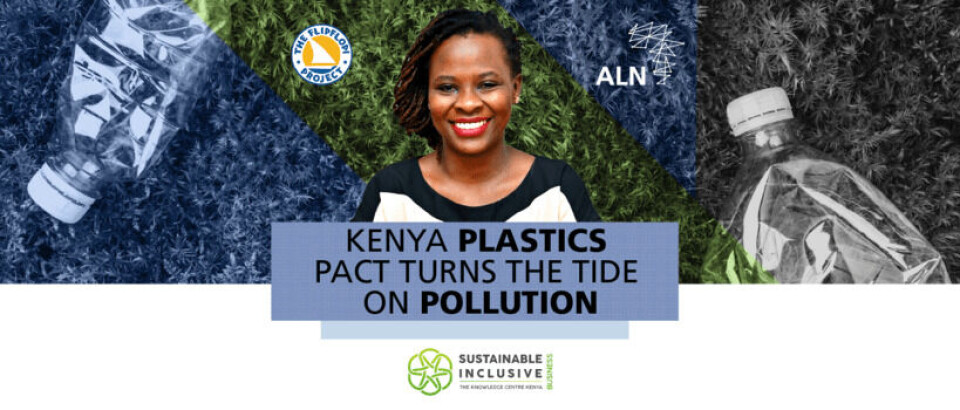In October 2021, Kenya’s government launched the new Kenya Plastics Pact which includes efforts to dramatically increase plastic recycling rates and also eliminate unnecessary single-use plastic packaging items through redesign, innovation and reuse.
This makes Kenya the second country in Africa (after South Africa) and the 12th globally to launch a plastics pact whose overarching goal is to stimulate the growth of the circular economy by recycling non-biodegradable waste.
The Kenya Plastics Pact (KPP) is led by Sustainable Inclusive Business (SIB-K), the Nairobi-based knowledge centre under the Kenya Private Sector Alliance. It draws support from the UK-based environmental group WRAP, the MAVA Foundation, UK Research and Innovation, and the Ellen MacArthur Foundation.
Josephine Wawira, the Communications Expert for SIB-K, describes the KPP as a very structured voluntary initiative that brings together stakeholders across the plastics value chain to transform the current linear plastics system into a circular economy for plastics.
All stakeholders involved sign up to a joint set of ambitious and time-bound targets to drive significant change by 2030.
Importantly, says Wawira, progress will be monitored and publicly reported every year. She believes the UN global treaty can only be helpful to business as it would create uniform global rules that avoid unfair competition from unscrupulous actors in the plastics value chain.
Wawira says Kenya’s pact also reinforces the Extended Producer Responsibility (EPR) legislation and will leverage progress by sharing knowledge with other pacts around the world. “We don’t want Africa to become the dustbin for Europe’s unwanted plastic and we welcome the legal push towards designing more durable materials and better collection schemes internationally.”
New plastic regulations at a local and global level are also expected to create new opportunities for the legal fraternity, Wawira said, noting that “no business can survive without good legal advice”.
The KPP has set four targets to be reached by 2030:
Target 1: Eliminate problematic or unnecessary single-use packaging items through redesign, innovation or reuse delivery models.
Target 2: 100% of plastic packaging to be reusable or recyclable.
Target 3: 40% of plastic packaging to be effectively recycled.
Target 4: 15% average recycled content across all plastics packaging.
To encourage innovation and achieve these targets, the KPP will also engage the government to consider a variety of new tax incentives and appropriate levies.
Wawira says that SIB-K is supporting the pact in various ways including the publication of “best practices”, trend reports, information about webinars, media articles, social media campaigns as well as one-on-one engagements with the government and the private sector.
Earlier this year, SIB-K also launched a new Single-Use Plastics report in conjunction with the Flipflopi Project and ALN Kenya. It aims to promote a better understanding of existing regulations in the East African Community to lay the groundwork for streamlined legislation to regulate plastics production and support waste management.
To join Africa Legal's mailing list please click here

